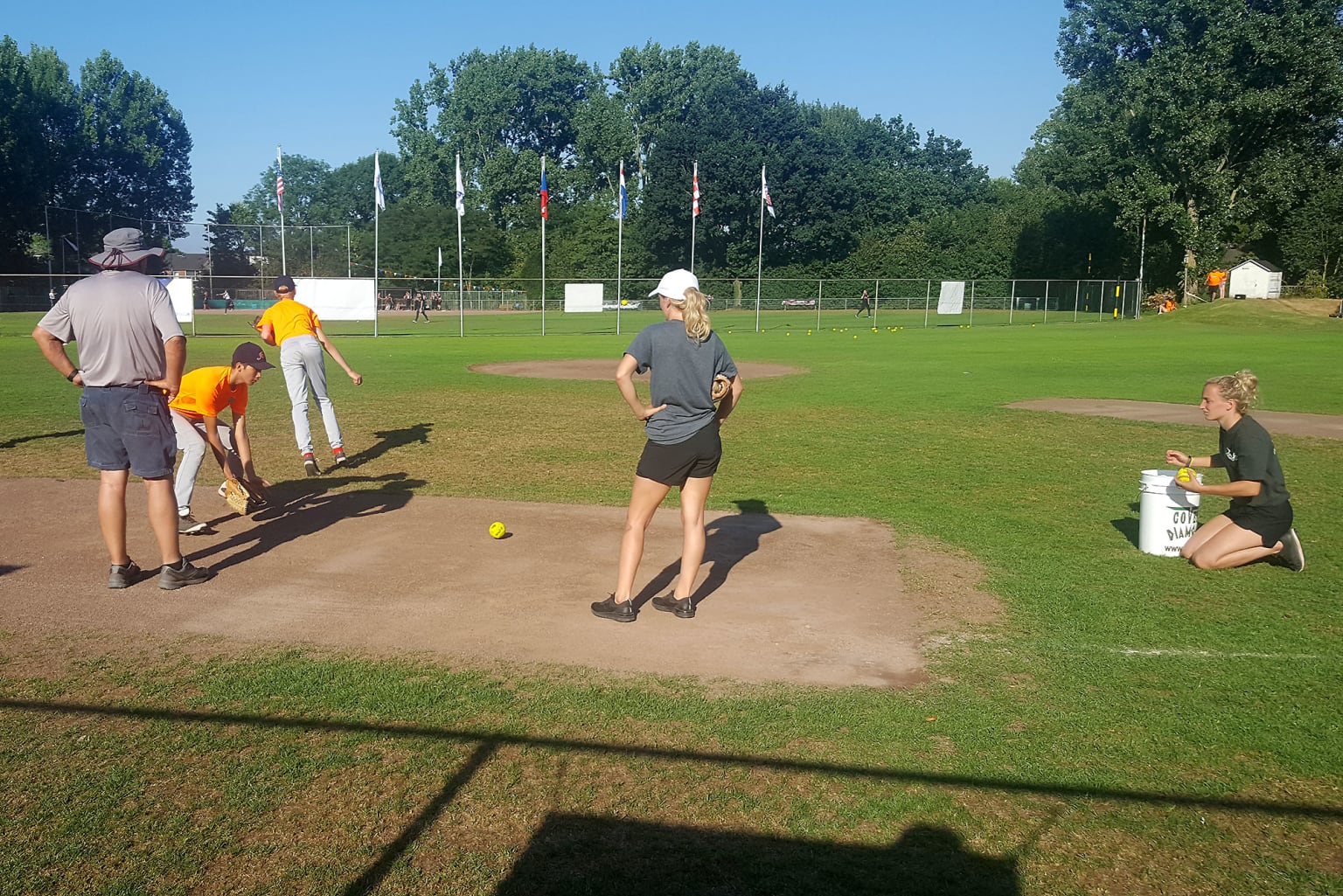
Being a Little League® coach has a similar learning curve to the players they are mentoring. To assist volunteers choosing to coach for the first time or return for another season in the dugout, there are plenty of ways to prepare for the coming season and through the year.
These best practices can assist anyone interested in learning on their own, or as a group with the support of local leadership. The role coaches play in whether Little Leaguers enjoy their experiences is vital, and coaches training is essential for a successful program.
A local league, and specifically the members serving on the Board of Directors, is responsible for encouraging its volunteer base to consider serving as coaches or team managers. This annual task becomes easier when volunteers know that their efforts will be supported by structured education and training sessions.
Best Practices for Training Little League Coaches
Little League University
Little League International strongly encourages all its leagues use the materials currently available on Little League’s training and education website, Little League University. Little League University features a Coaches tab that offers an assortment of coaches training materials for all levels of the Little League program, including the complete Tee Ball and Coach Pitch curriculum downloads. If visitors to this free website do not specifically find information or direction, please email support@LittleLeague.org and place Suggested LLU Content in the subject line. In the email, you are invited to suggest topic(s) and the format (article, video, graphic, other) by which you would like see this information presented.
Little League Free Training Courses
Take advantage of the various free training courses available at LittleLeague.org/Training, including the mandatory annual Abuse Awareness Training as well as the Prepare: Resource Guide Companion Course, Play: Resource Guide Companion Course, and the Diamond Leader Training.
Coaching Coordinator Organizing Curriculum
The typical local league Board of Directors has an individual (Coaching Coordinator) or committee of volunteers (Division Vice Presidents) that is responsible for educating approved coaches. Commonly, a single in-service type of meeting is scheduled prior to the start of a league’s preseason to provide specific materials to coaches, review new playing rules and regulations, outline effective practice plans, answer general questions, and establish the line of communication from the teams to the Board. In a well-run league, the Coaching Coordinator and/or Division Vice Presidents plan a training curriculum that is executed during the weeks that include player tryouts and draft, and preseason practices; and features weekly meetings.
Communication
It is imperative that coaches and managers do not feel isolated from the league. The best practice for any new coach or manager is to speak with someone with experience. Regular communication, which can come in the form of simple weekly check-ins via in-person meeting, email, text, social media messaging, video call, etc., are of great value to newer coaches and managers.
Mentor Program
If a league does have coaches with multiple years of experience, establish a mentoring program to allow the less-seasoned volunteers to be introduced to, and become familiar with, coaching nuances such as how to develop practice plans, game-day routines, and a successful rapport with their players. If not, reach out to the local high school, college, or university baseball and softball program, and inquire if a member of one of those programs would be willing to visit the league to conduct a clinic or seminar.
Regular Season Review
Local leagues have an individual(s) that is/are responsible for the operation of each division during the regular season. This person/staff serves as the training liaison and is in place to provide oversight and support to coaches, answer questions, and assess how well the manager and coaches of the teams in that division are fulfilling the goals of the league and the Little League mission.
Manager and Coach Survey
The Coaching Coordinator and/or Division Vice Presidents are encouraged to collect feedback from the players and their families. Provide the parents/legal guardians with access to a survey (printed or electronic) where the manager and coaches are reviewed. These opinions and their perception of the experiences during the regular season often provide substantial direction for the league when it comes time to consider volunteers for selection as tournament coaches, or potential Board members. As important, these responses often help to identify what areas of education need to be enhanced or added for the coming season.
Positive Coaching Alliance
In partnership with Little League International, Positive Coaching Alliance (positivecoach.org) has many resources geared toward youth sports coaches and managers. Free and available online and on Little League University, many of the materials, lessons, and educational messages are adaptable, regardless of what sport is featured. A few minutes searching the PCA website or reviewing the PCA content on Little League University is time well spent.